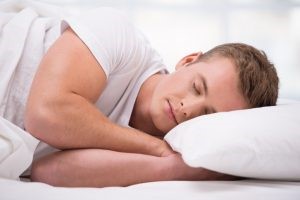Dr. David Bacon shares in this Lighting Science blog entry how soldiers deployed on missions might find sweet sleep difficult during assignments.
 |
|
A soldier napping while on deployment. (All photos courtesy of Lighting Science) |
Deployment is common in all branches of the U.S. military. Getting a good night’s sleep while on deployment is not. In fact, research by the American Academy of Sleep Medicine found that active duty service members in general are at a high risk for insufficient sleep.
There are no weekends on deployment
 |
|
A typical day on deployment includes lots of strong coffee. |
Lasting from a few weeks to a few months, deployment typically involves violent, hot, dusty and extremely loud locations. Whether out at sea, or far in-land, deployment workdays are often long, arduous and stressful.
A typical day starts with breakfast at zero dark 30. It includes lots of strong coffee and maybe some nicotine. Breakfast is followed by work, exercise, work, chow, work, more coffee and nicotine, work, chow, work, more coffee and nicotine, and work.
Service members are lucky if they’re able to grab a few hours of sleep next to a generator that is running 24/7 to keep the lights and air conditioners on. As a result, many only get four-to-five hours of sleep at night. This routine goes on for 6-9 months (189-240 days), day-in and day-out, with no weekends off.
ROUTINE EXHAUSTION IS THE NORM
The tempo of deployment is difficult to explain if you haven’t experience it first-hand. It’s like pulling an all-nighter before a big exam. Except finals only happen a couple of times a year—and don’t last for six to nine months.
For most deployed service members, exhaustion is routine. No big deal. Just part of the mission. It is often only after returning home, that service members realize just how physically and mentally taxing it was. And will be again—when the call comes for another deployment.
Being tired isn't the only problem
Unfortunately, when deployed service members don’t get the sleep that they need, being tired isn’t the only problem. According to research by the Rand National Defense Institute, “sleep is especially important in the military. Short sleep duration or poor sleep quality can significantly affect the operational readiness of individual service members and the functioning of the entire unit.”
Lack of sleep is also associated with more serious physical and mental health issues, a host of related conditions called Blue Light Syndrome. These include depression, post traumatic stress disorder, suicide, accidents, injury, heart attacks and even death.
Not surprisingly, sleep issues often continue for weeks or months after being in a conflict environment. Insomnia and nightmares also make it much more difficult for service members to successfully rebuild their lives post-deployment.
 |
|
Electronic devices emit stimulating blue light spectrum that delays sleep. |
Get the right light at the right time
Fortunately, paying attention to the few external stimuli that a service member can control while on deployment makes a world of difference. Getting enough exercise and restricting caffeine and nicotine are obvious. But service members may be surprised to learn that getting the right light at the right time will also help them feel more rested.
The little bit of downtime that service members do get usually involves watching movies or playing video games before heading to bed. While this is a great way to catch up with friends, these activities often make service members even more exhausted. Study after study shows that the blue light emitted by electronic devices, like laptops, mobile phones and video games, has profound effects on the human body.
Light has a profound impact on our bodies
That’s because exposure to periods of light and dark control our circadian rhythm, or body clock. Exposure to sunlight, or sources artificial light like electronic devices, stimulate the production of hormones like adrenalin and cortisol. This is great during the day, because these hormones increase focus, alertness and reaction times.
But exposure to light after sundown, like watching a movie on a laptop, shuts down production of the sleep hormone, melatonin. Melatonin, a hormone released by the pineal gland in the brain, helps control sleep and wake cycles. When produced, it promotes sleep and when suppressed, it causes alertness. This makes it more difficult for service members to fall asleep—and to stay asleep.
How to improve sleep on deployment
 |
|
Minimizing light exposure at night makes it easier to fall asleep–and to stay asleep. |
Fortunately, there are several easy steps that service members can take to help them get a better night’s rest, whether they’re in a conflict environment or back home with family. Minimizing exposure to blue light for at least 90 minutes before going to sleep is a great place to start. This means no fluorescent lights, no video games, no movies and no cell phones. No light at night supports production of melatonin, which makes it easier to fall asleep.
Of course, it’s not always practical to eliminate all light before heading to bed. So outfitting a reading lamp with a light bulb that minimizes blue light spectrum is a great solution. These lights provide more than enough light for normal evening activities, such as reading a magazine or hanging out with friends, without the stimulating effects of regular lights.
Finally, service members should make sure that the room in which they sleep is completely dark so that they do not wake up prematurely. Exposure to sunlight or other sources of artificial light shut down melatonin production, making it very difficult to roll over and go to sleep.
Conclusion
Sleep disturbance is one of the most common reactions to the stress of combat deployment. Getting a decent night’s sleep in a conflict environment will always be challenging. But service members owe to themselves, to their unit and to their families to make it a priority. Getting the right duration and quality of sleep is powerful way for service members to recharge and be at peak performance for the missions ahead.
Author
 |
|
Dr. David Bacon . |
Dr. David Bacon has been conducting, directing and developing evidenced based infectious disease research for more than 20 years. His research effort has led to development of a potential vaccine candidate against a major cause of gastroenteritis in deployed military personnel and individuals traveling to developing countries. Dr. Bacon has published 35 peer reviewed manuscripts. He has served as a subject matter expert for the World Health Organization on malaria drug resistance. Currently he is involved in developing multi-agency infectious disease programs and is a member of several programmatic reviews boards. Dr. Bacon received his PhD in Microbiology from the University of New Hampshire in 1997 and completed a post-doctoral fellowship in enteric diseases and malaria.
















